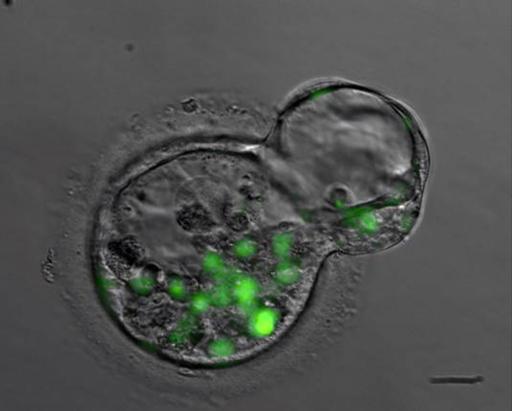I don’t claim, along with the late great American singer-songwriter Sam Cooke, to know much about history, biology or, indeed, a science book.
Indeed, I think my only qualifications in the fields of science and medicine are a C-grade physics O level and a mother who was a GP.
Those are pretty flimsy claims to expertise in this highly skilled field. But they would still push me into the A-stream compared with the many religious figures who have waded into the debate over a controversial new IVF technique to allow the creation of three-parent babies.
MPs will vote today (Tuesday) on whether to allow doctors to use the new technology toreplace an egg’s defective mitochondrial DNA with healthy DNA from a female donor. This, doctors say, will prevent 150 babies from being born in the UK every year with serious, and often fatal, genetic diseases.
How wonderful, you might think. Well, yes, unless you’re a spokesperson for a major church or other religious organisation, in which case it’s not wonderful at all. Far from it.
Indeed, various religious spokespeople have been wheeled out to insist that this genetic development is (cue sad shaking of the head) very worrying indeed and a “slippery slope” towards “designer babies” and Nazi-style eugenics.
They are right about one thing. It IS a slippery slope. Towards babies being born free of nasty genetic diseases. But, hey ho, what’s a little cystic fibrosis among friends?
While a committee of leading doctors, scientists and ethicists, and no less than five Nobel prize winners, insist this new technology is safe, just as many newspaper column inches and as much airtime have gone to the apparently equally valuable arguments of the religious opponents.
But why does anyone think that religion has any greater right (God-given or otherwise) to tell doctors, scientists, MPs and indeed you and me what we can and can’t do?
By all means, let them advise their congregations on what they believe is right or wrong. That’s their job. But why on earth should their opinions have any bearing or weight outside their churches?
The opinion of church figures on the morality or otherwise of a scientific and medical issue is about as valuable and useful as the opinion of the World Wrestling Federation.
Of course there are important philosophical and ethical questions surrounding many medical and scientific advances, but the idea that religious people are in some way to be regarded as experts of similar standing is just bizarre. Their area of expertise is faith, which (last time I looked) is precisely the opposite of science.
The Catholic Church, in particular, takes a dim view of any interference in the creation of life, damning the wonders of IVF as an abomination because it allows the “domination of technology over the origin and destiny of the human person”. Children, it is argued, are a gift not an entitlement.
That’s all fine and dandy and they are entitled to that opinion. But the advancement of science and medicine can’t be held back simply because some people believe this latest IVF technology will mess with “God’s plan”.
On that basis, no one should ever be allowed to go to the doctor for any ailment. We wouldn’t be looking for a cure for cancer, or doing open heart surgery and we certainly wouldn’t be saving the lives of premature babies in intensive care units. Just put them out on the hillside to die – as God intended.
Whenever atheists like me question why God is so cruel to let so many people (and especially innocent children) live and die in misery and suffering, we are told “it’s all part of God’s plan”.
But, then, so must this scientific development be part of God’s big plan. Surely, if God is happy to allow his gift of “free will” to be used by murderers and paedophiles to do their horrible deeds, then He must be at least equally happy for scientists to do their rather nicer deeds of trying to cure disease?
The fact is that a belief in God is not a qualification in medicine or science.
Yes, there are risks attached to this new technology – as there are to all scientific developments. However, the slim possibility of future risks to future generations are far outweighed by the very real and existing risks to babies already born with these genetic diseases and the certainty that their brothers and sisters, and one day possibly their own children, will be born with the same affliction.
If God is really that bothered about all these genetic developments, then why did He give man the brains, the ability and the drive to come up with these magnificent cures in the first place?
If just one more baby can be born into this world without suffering a horrible and possibly fatal disease, then no one with an ounce of humanity or God in their hearts should stop that from happening.
And if it did, as Sam Cooke might say, what a wonderful world this would be.

COMMENTS
Please let us know if you're having issues with commenting.